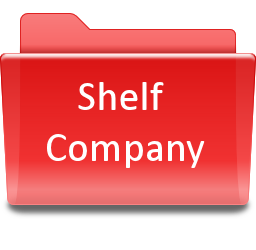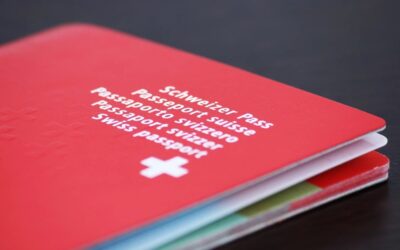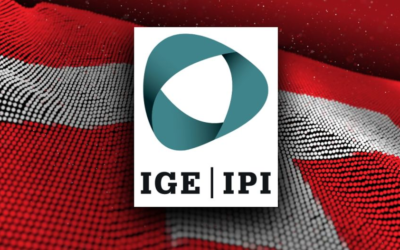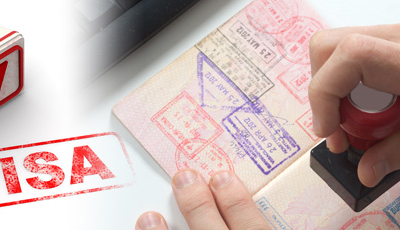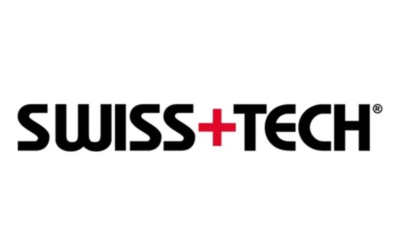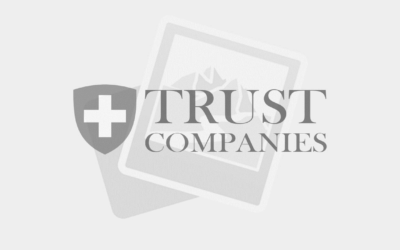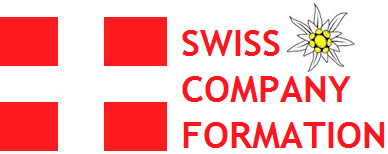Would you talk with someone in our company regarding any issues? Just drop us a line!
- 1 Understanding the Role of a Trustee in Switzerland: A Guide to Fiduciary Security and Responsibility
- 2 Why Trustee Services Matter in the Swiss Context
- 3 Key Duties and Legal Foundations of Trustees
- 4 Evaluating Trustee Services: Transparency, Pricing, and Risk Awareness
- 5 Conclusion: Choosing the Right Swiss Trustee for Your Needs
- 6 FAQ about Understanding the Role of a Trustee

Understanding the Role of a Trustee in Switzerland: A Guide to Fiduciary Security and Responsibility
Switzerland, renowned for its stability, discretion, and precise financial regulations, is also a leading hub for fiduciary services. The role of a trustee in Switzerland goes far beyond simple asset management. It encompasses a broad range of legal, administrative, and advisory responsibilities designed to protect both personal and corporate interests. But with so many providers, how do you distinguish the right partner, and what are the potential pitfalls?
In this article, we’ll explore how Swiss trustee services operate, the importance of choosing a certified fiduciary, and how to avoid common risks associated with unregulated trustee title Switzerland.
Why Trustee Services Matter in the Swiss Context
In Switzerland, the term “trustee” is widely used—but not always regulated. While some trustees hold formal Swiss trustee certification, others may operate under vague titles without clear accountability. This makes understanding Swiss fiduciary duty critical for any client entrusting assets or seeking strategic guidance.
A certified registered trustee Switzerland acts as a legal representative for clients’ assets or entities, often managing Swiss accounting and tax advisor tasks, handling regulatory compliance, and ensuring transparent reporting. Their role frequently includes:
- Managing asset structures (foundations, trusts, companies)
- Overseeing fiduciary contracts and investments
- Ensuring tax compliance and optimization
- Acting as corporate secretary or director for foreign-owned Swiss entities
Choosing a trustworthy fiduciary is essential for ensuring the success of your financial plans, particularly if you are considering Swiss company setup or planning to open a Swiss bank account.
Key Duties and Legal Foundations of Trustees
Switzerland does not have a standalone “trust law,” but the Swiss Code of Obligations provides the legal basis for fiduciary relationships. Trustees must operate in good faith, disclose potential conflicts of interest, and avoid actions that could harm the beneficiary or client. Violations of trustee fiduciary responsibility can lead to contract termination and legal consequences. Complement your trustee arrangements with professional fiduciary services for comprehensive business support.
In 2020, FINMA launched the Trustee Supervisory Ordinance (TSO) to standardize licensing requirements, but as of today, not all fiduciaries fall under its scope. That’s why clients must perform due diligence and inquire about a provider’s Swiss fiduciary partner status, qualifications, and licensing.
If you’re unsure how to vet your advisor, refer to https://www.finma.ch/en/authorisation/trustees-and-portfolio-managers/ for official listings of certified trustees.
Evaluating Trustee Services: Transparency, Pricing, and Risk Awareness
For many clients—especially foreigners investing in or relocating to Switzerland—the trustee is the primary point of contact for all legal and administrative matters. However, problems can arise if a fiduciary lacks experience, accountability, or appropriate licensing. In fact, one of the more serious concerns in the market is the rising number of cases involving bad trustee Switzerland risks, where poorly chosen service providers create more legal exposure than protection.
One key area clients often overlook is transparency around trustee fees Switzerland. Rates vary significantly depending on complexity and location, but most reputable firms provide a clear price calculator accounting Switzerland or at least a structured fee model. Understanding the cost early in the relationship helps avoid surprises and signals whether the fiduciary prioritizes client clarity.
Moreover, in an era of digitization, many clients are now turning to digital fiduciary Switzerland providers. These services offer automated reporting, remote onboarding, paperless document handling, and real-time financial dashboards. While convenience is a big draw, it’s important to verify that even digital firms maintain the same level of regulatory compliance and Swiss standard due diligence.
Comparison of Traditional vs. Digital Swiss Fiduciary Services
| Feature | Traditional Fiduciary | Digital Fiduciary Switzerland |
| Paperless Onboarding | Rare | Yes |
| Real-time Tax Reporting | No | Often Included |
| Accessibility | Office hours only | 24/7 online portal |
| Document Storage | Physical archives | Cloud-based secured vaults |
| Integration with Swiss tax tools | Manual input | API & automated uploads |
Beyond service type, clients must also understand the rules for contract management. If things go wrong, trustee contract termination must be done in accordance with Swiss commercial law and clauses specified in the agreement. Legal grounds include breach of fiduciary responsibility, conflicts of interest, or ongoing lack of performance. Clients facing such issues are strongly advised to consult a Swiss tax consultant or legal professional to ensure correct procedures.
If you’re planning to establish a holding or operating entity, consider learning about the Swiss ag or Swiss gmbh corporate structures—these often require formal fiduciary representation.
Another crucial detail is that Swiss trustee services can differ significantly between cantons, depending on the local business registry and fiduciary oversight. Therefore, if you’re considering relocation, opening a company, or changing representatives, make sure your personalized trustee Switzerland has deep knowledge of your target region.
Refer to https://www.zefix.ch for checking the commercial register and existing trustee listings by canton.
Conclusion: Choosing the Right Swiss Trustee for Your Needs
As the financial and legal landscape continues to evolve in Switzerland, choosing a qualified and compliant trustee is more important than ever. Whether you’re starting a business, managing assets, or ensuring compliance, the fiduciary you select must reflect both expertise and transparency. A strong Swiss fiduciary partner can be instrumental in reducing your tax burden, protecting your assets, and navigating complex cross-border requirements. Learn how our experienced professionals can help you establish and manage a trust in Switzerland effectively.
Clients should always verify qualifications, request references, and examine whether their provider has clear policies for trustee fiduciary responsibility and contract termination. Understanding the difference between regulated and unregulated trustee title Switzerland is not just legal detail—it can have significant consequences for your financial wellbeing.
Don’t forget that many aspects of fiduciary services, from reporting and onboarding to compliance, can now be digitized. However, even the most innovative digital fiduciary Switzerland platform must still comply with the legal framework and provide adequate human support.
If you’re unsure where to begin, visit https://www.estv.admin.ch for insights on tax compliance and reporting requirements for fiduciary service providers.
Key Criteria to Evaluate a Swiss Trustee
| Criteria | Importance | Red Flags to Watch For |
| Legal Certification | Mandatory if regulated | Unlicensed or vague status |
| Transparent Pricing | Builds trust with clients | Hidden fees or unclear billing models |
| Regional Knowledge | Especially for SMEs/startups | Lack of experience in your canton |
| Digital Capabilities | Increases efficiency | No access to online dashboard |
| Legal & Tax Advisory | Essential for compliance | No affiliation with legal advisors |
Common Missteps When Hiring a Trustee in Switzerland
| Mistake | Why It’s a Problem | How to Avoid |
| Choosing based on low price alone | May lead to legal or financial risk | Verify qualifications and transparency |
| Ignoring contract termination clauses | Limits your exit options in disputes | Always read and negotiate termination terms |
| Not checking public registers | Trustee might not be officially listed | Use https://www.zefix.ch |
| Skipping tax consultation | May miss out on deductions or reliefs | Always consult a Swiss tax consultant |
Whether you’re an individual investor or managing a global structure, a trustworthy and qualified trustee is a pillar of success. If you’re considering relocation, explore Swiss residence permit options. If you’re interested in forming legal structures, take time to review your options for a Swiss foundation or structured Swiss company setup.
In the complex world of fiduciary duties and compliance, your best asset is knowledge—and the right partner.
Would you talk with someone in our company regarding any issues? Just drop us a line!
FAQs
A trustee in Switzerland manages legal and financial affairs for clients, often providing fiduciary support for tax compliance, business formation, and asset protection.
Always verify their registration, check for Swiss trustee certification, and review client feedback to assess transparency and competence.
Lack of legal knowledge, hidden fees, or breach of fiduciary duties. Learn more in our Swiss taxes guide.
No. The term “trustee” is unregulated unless the fiduciary is certified under Swiss financial law.
Yes, many providers offer remote and paperless services, but ensure they meet compliance standards and security protocols.
Fees vary by complexity but range from CHF 150 to CHF 500+ per hour. Use a price calculator accounting Switzerland when available.
Review your service contract. Contract termination should align with Swiss commercial law and be documented in writing.
Yes, a Swiss fiduciary partner can help optimize taxes and handle administrative tasks for lean operations.
Look for services offering real-time dashboards, e-signatures, and integration with Swiss tax portals like https://www.estv.admin.ch.
Visit the official Swiss commercial registry at https://www.zefix.ch for verification.




